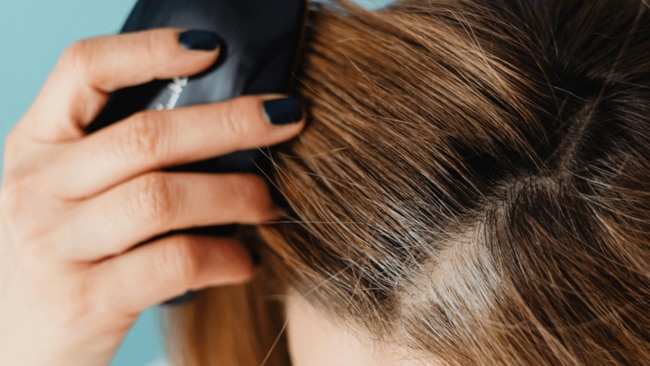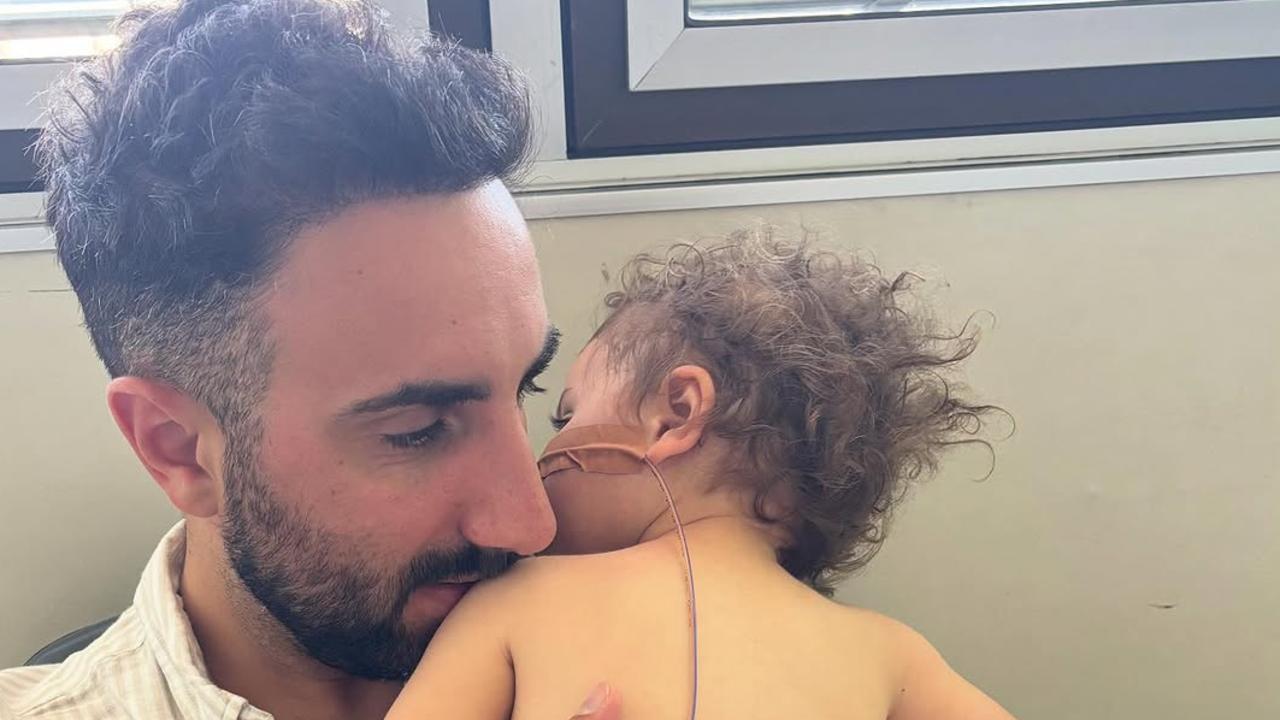Could PCOS be the reason for your hair loss?
An expert explains

Lifestyle
Don't miss out on the headlines from Lifestyle. Followed categories will be added to My News.
In this article:
An expert breaks down the most common symptoms of PCOS
Understanding hair loss as a symptom of PCOS
How to manage PCOS-related hair loss
Dr Lauren Thomas, a doctor at Software, answers all your burning questions about the link between polycystic ovary syndrome and hair loss.
Experiencing hair loss can be a deeply emotional experience. Dealing with hair loss as a symptom of polycystic ovary syndrome (PCOS) can be even more troubling.
Hair loss and thinning are both common symptoms of PCOS and can, confusingly, occur alongside other symptoms that cause excessive hair growth on your face and areas other than your scalp.
It’s important to understand that there are ways to help hair loss as a result of PCOS, the first step being to understand its cause, symptoms and potential treatments. Read on for everything you need to know about the connection between PCOS and hair loss, including how best to manage it.

What is PCOS?
Polycystic ovary syndrome is caused by an imbalance of hormones. This can increase the number of follicles in the ovaries. For those with PCOS, eggs are often not released during the menstrual cycle which then cause irregular periods and difficulty getting pregnant.
PCOS, or Polycystic Ovary Syndrome, is the most common endocrinopathy affecting reproductive-aged women. It’s estimated that 10-15 per cent of women are affected by PCOS, but due to delays in the diagnostic process, many women remain undiagnosed.
Approximately 1 in 10 women in Australia experience PCOS symptoms.

What are the symptoms of PCOS?
The main symptoms linked to PCOS are:
- Irregular periods
- Difficulty getting pregnant
- Weight gain
- Acne
- Hair loss (from scalp)
- Thickening/new growth of body or facial hair
Diagnosis of PCOS is based on the Rotterdam criteria (2003). It requires two out of three criteria to make a diagnosis:
- Oligomenorrhea (less than eight periods per year)
- Hyperandrogenism (an excess of sex hormones, otherwise known as androgens)
- Polycystic ovaries (taken by an ultrasound of the ovaries showing multiple cysts)
Typically two of the most reliable clinical markers of PCOS are hirsutism (excess hair often growing around the mouth and chin) and acanthosis nigricans (a skin condition typically linked to thick, dark patches or streaks of skin, usually in the creases and folds including the neck, armpits, elbow pits and groin area).However, those with PCOS also have a higher risk of metabolic syndrome, some malignancies and infertility. PCOS is also associated with cardiovascular risk factors including obesity, insulin resistance, diabetes, sleep apnea and liver inflammation. Furthermore, it can contribute to mental health conditions such as depression, anxiety and eating disorders.

Is PCOS linked to hair loss?
While PCOS is often associated with hirsutism, or the growth of thick body or facial hair, the loss of hair from the scalp is another common symptom of the condition.
Hair loss resulting from PCOS can occur as gradual loss or thinning from the scalp. This is referred to as androgenetic alopecia (AGA). Sometimes this condition is also called male pattern baldness – but this pattern can also occur in females. Androgenetic alopecia (hair loss from hormones) is specifically reported as a clinical sign of hyperandrogenism associated with PCOS. The imbalance of hormones, specifically an excess of dihydrotestosterone (DHT), can actually shorten the active growth cycle of hair.
Can hair loss from PCOS grow back?
While hair loss from PCOS can be difficult to manage, there is hope for regrowth. Androgenetic alopecia is a non-scarring form of alopecia, which means the hair can grow back. However, the longer it is left to progress, or the larger the total percentage of hair loss, the more difficult it is to treat.
Getting to the root cause of the problem is the best way to help your hair grow back. But remember, good things take time and promoting hair regrowth is not going to happen overnight.There are some other risk factors that might cause difficulty in promoting hair regrowth. Hyperandrogenism can also cause seborrhoeic dermatitis, a form of skin inflammation. This is an important aspect to manage as it can prevent additional hair loss.
What are the best ways to treat hair loss caused by PCOS?
Medication is the first-line of treatment for AGA. It’s best to seek advice from a healthcare professional who can assess your individual situation and develop a treatment plan based on your symptoms, history and lifestyle. However, there are other general hair care methods that can be implemented to minimise hair loss:
- Limiting excessive heat styling
- Not wearing hair in tight hairstyles and allowing your hair to sit down
- Avoiding excessive brushing and washing
- Maintaining a well balanced diet (including foods high in protein and iron as these are the building blocks to help the body make more hair)
More Coverage
Originally published as Could PCOS be the reason for your hair loss?




